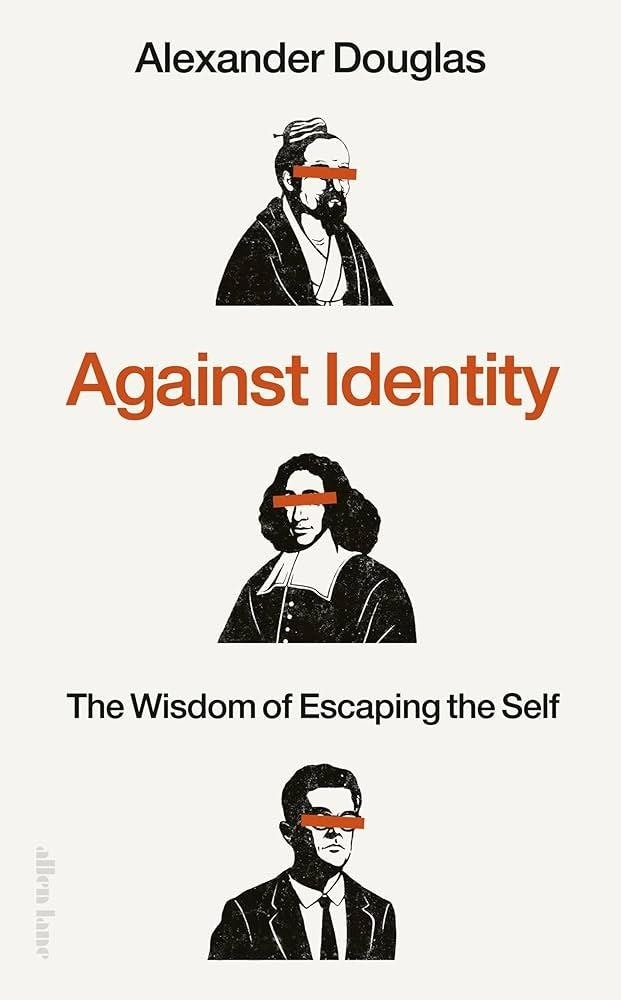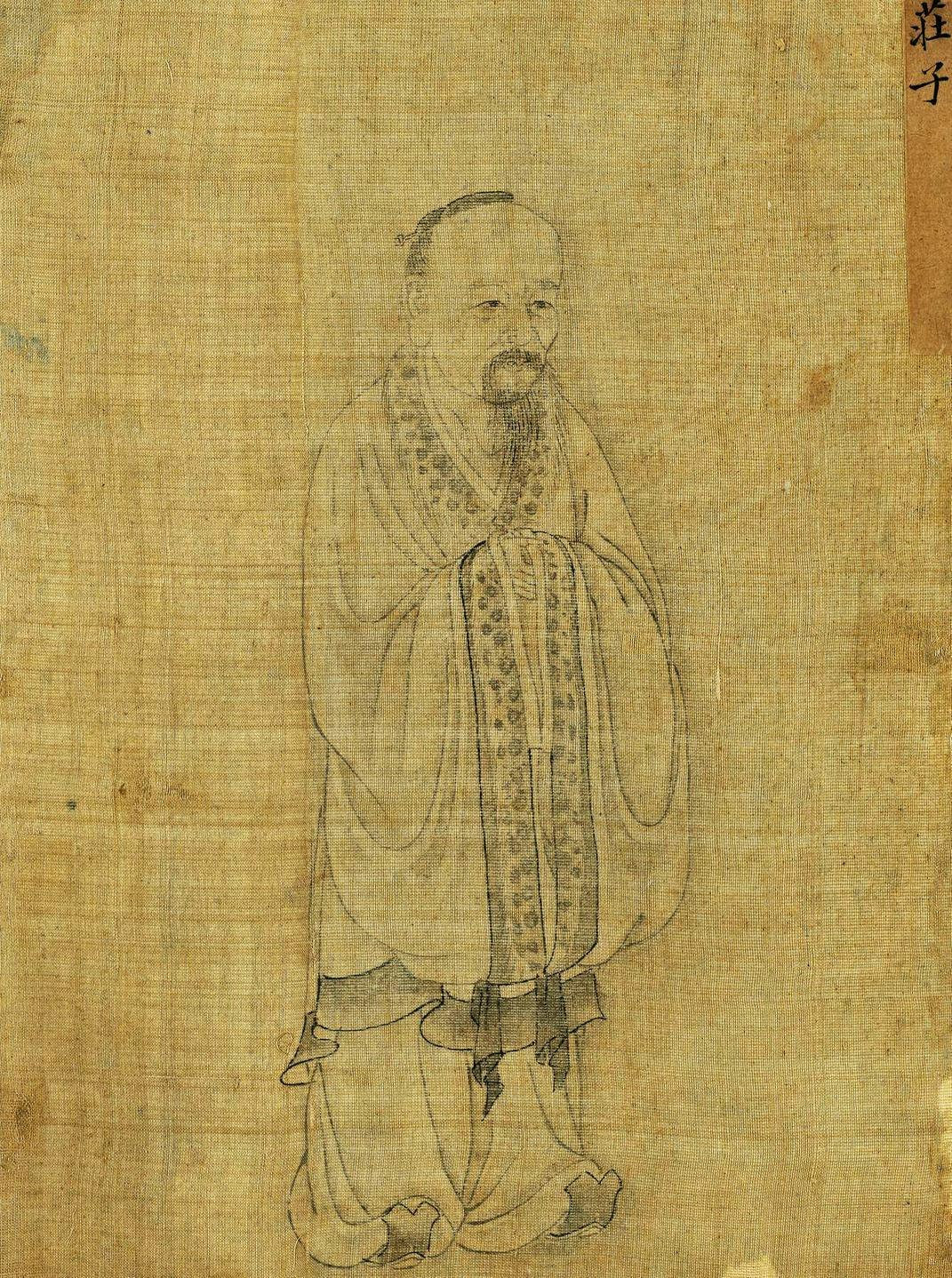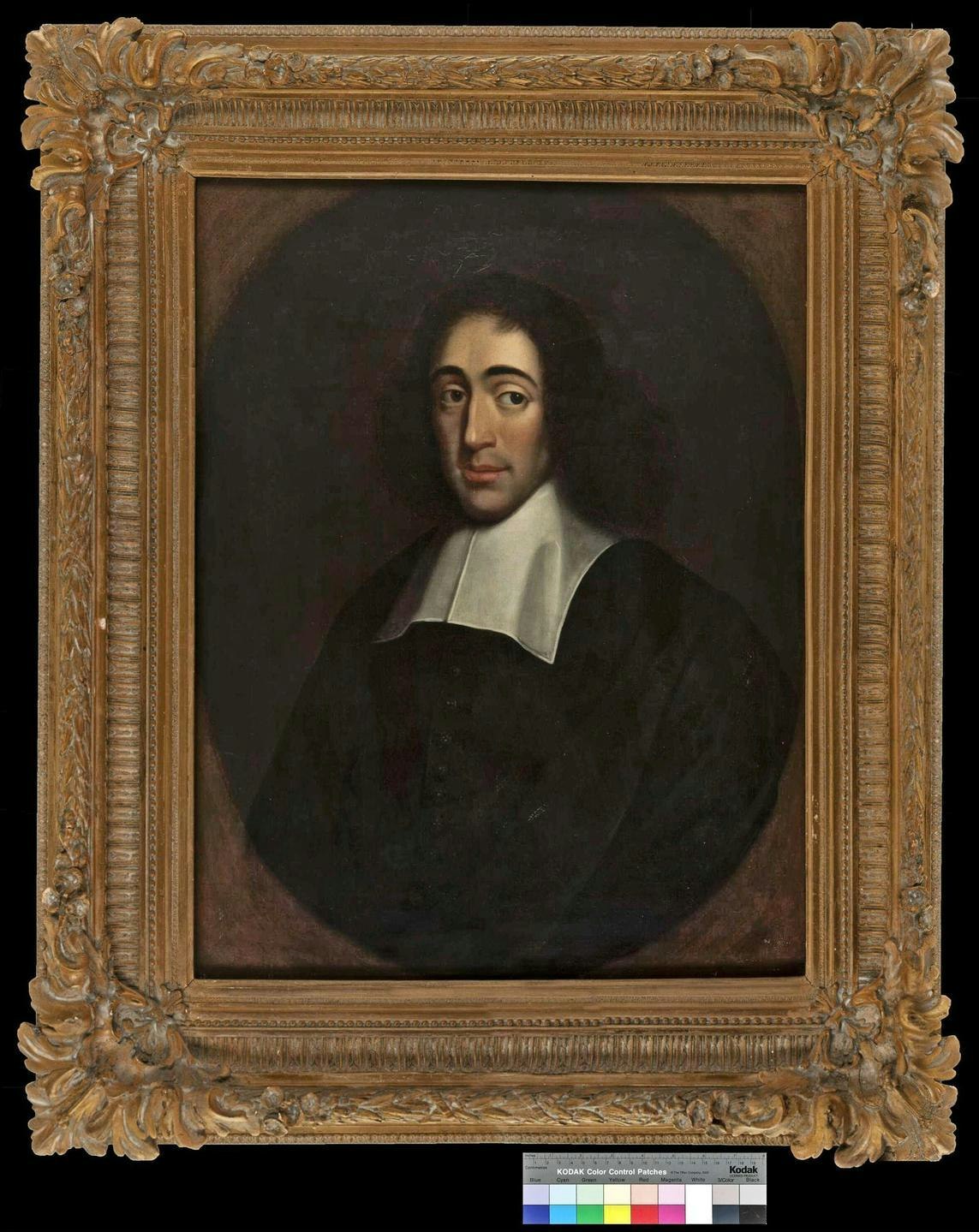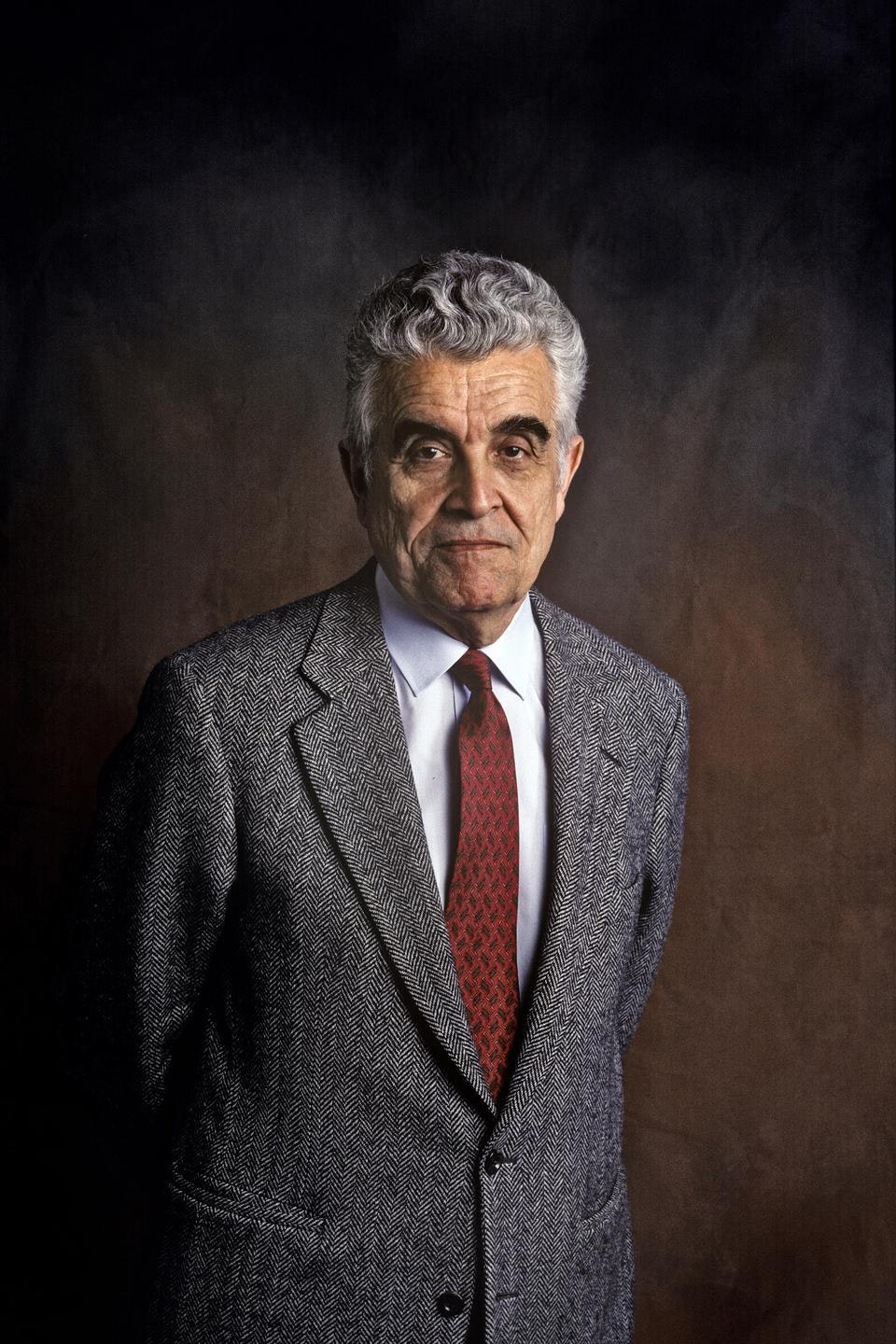This article is taken from the July 2025 issue of The Critic. To get the full magazine why not subscribe? Right now we’re offering five issues for just £25.
In Against Identity, philosopher Alexander Douglas asks a provocative question: is identity itself both an illusion and a dangerous imposition? In an age where individual identity is sacred and we are desperately polarised over identity politics, this line of thinking is perhaps the ultimate taboo.

Douglas argues the invention of identity is both a tragic and a universal story, linking together the seemingly improbable combination of the ancient Chinese philosopher Zhuangzi, 18th century Dutch philosopher Baruch Spinoza and the 20th century Catholic thinker René Girard.
He starts his narrative with the tale of Hundun. A long time ago there were three emperors, called Shu, Hu and Hundun. Shu ruled the South, Hu the North, and Hundun’s empire lay in between the two. The three emperors would meet in Hundun’s central realm, where he would greet them with great hospitality.
Whilst Shu and Hu had faces like ours, Hundun’s face was blank, lacking the opening of ears, nose, eyes and mouth. One day, Shu and Hu decide to make Hundun a face, boring a new hole into his face every day. On the seventh day, when the last hole is bored, Hundun dies.
Hundun’s fate is more than mythology for Douglas; it is essentially the story of the fall of humankind. Each one of us, he contends, has a self that can never be fully captured by any identity. This egoless self is uniquely capable of welcoming and reconciling both other people and the ever-changing experiences of the world around us.
Yet it is here that tragedy occurs: society inflicts a face upon us, giving us a life that will never be quite adequate and drawing us into the dangers of pride, envy and ceaseless striving after identities that can never and will never be truly ourselves.
The book is a sort of extended essay on this theme, elegant and entertaining. It is refreshingly even-handed in its negative analysis of both sides of contemporary culture wars, pointing to the rivalrous resentments beneath national populism but also exposing the essential hollowness of negatively framed projects such as post-colonialism.
His account of a “powerful identity regime” in which “everyone is visible, everyone monitors everyone else and the social costs of failing to curate and present the right identity can be devastating” is a compelling analysis and one that lends credibility to his negative account of identity. Yet the book races ahead of its own argument, leaving too many questions unanswered. Douglas’s ultimate solution of a self beyond identity is never fully defined. We are supposed to withdraw from identity, but he also speaks of our ability to freely play with identity.
Attempting to identify with someone, we are told, leads to inevitable rivalry and conflict, yet we are somehow to be “arcanely united” in identitylessness. He astutely notes the irony of the existentialist proponents of “radical freedom” winning over disciples to total autonomy, but the issues of recursion and contradiction seem no less urgent for the person without an identity.

Identity itself is introduced within a specific critical framework, but the word and the concept are presented naively, without context or history. The idea of identity is extremely modern and very contested. The notion that emulating others and taking on an identity must inevitably draw us into pride, rivalry and envy is continually asserted but never properly justified.
It’s certainly a familiar and real mechanism, but we all know of people with strong identities who do not chauvinistically assert them and of cases where we ourselves desire to emulate a noble individual without resenting them for their greatness.
The notion of opting out of the modern identity regime and having a more playful relationship to our many identities is profoundly attractive, but the road is presented as overly obscure and agonistic by Douglas. There are many pre-modern philosophers who discuss identity in just such terms, such as Cicero, who speaks not of identities but personae (literally “masks”) — different social roles and duties that we fluidly shape ourselves to, taking them on and off like different dignified garments.
And it is exactly at the social level that the anti-identity argument starts to break down. The problem with taking something as fundamental as identity, especially if it is to be defined very broadly, is what I call the “religion causes wars” fallacy. Those of you unfortunate enough to have debated with fervent evangelists of atheism on or offline will be familiar with this line of thinking.
We can point to thousands of conflicts in which religious faith is implicated. If nobody believed in religion, these conflicts wouldn’t have taken place. QED religion is bad. It’s superficially persuasive, until you realise that religion is a fundamental aspect of human culture and psychology. It’s like saying love causes conflict and suffering — basic human motives are motivating.
Obviously all the evils ascribed by Douglas to identity — the impossibility of finding authenticity, conflicts between identity groups, a closure to other forms of being — are all entirely, indisputably true. But, as he himself is forced to admit, humans are mimetic beings and this cannot be escaped or evaded.
What he seems to be gesturing towards is less a total abandonment of identity than a changed relationship with it, in which no single identity fetishistically eclipses our indefinable selves. Yet I fear in his pell-mell flight from identity, he is preaching a dangerous gospel. Having rightly noted that identity is a powerful tool for social control and enforcing conformity and compliance, he goes on to lay out his alternative.

He suggests that our identity regime is holding back both technological innovation and vitally necessary changes to our way of life in the face of challenges such as climate change. What he appears to be advocating in its place, however, is a gospel of passivity and a willingness to continually change and adapt as technological and social change is imposed from without.
Looked at one way, identity is producing prideful, self-interested groups persecuting free thinkers and resisting necessary change. But looked at in another, identity is a vital component for reform and fighting tyranny, a force that has driven everything from trade unions to resistance against totalitarianism.
The very word “identity” imports too much anyway. Douglas is an effective critic of individualism but has not really escaped many of its assumptions. Nations, cultures, religions, cities, social clubs and families are not just “identities” that we take on. They are constituted by histories, habits, styles of life and symbols, all of which are held in common between their members.
Such social bodies should not, and typically did not, make absolute claims upon our personhood, and such dangerously extreme demands are features of modern cults and totalitarian societies. In historic societies such as the medieval West, the plurality of claims upon our identity was an essential feature of feudal society. The rise and decline of customs such as claiming sanctuary in religious buildings is nothing less than the story of plural identity over time.
Douglas’s essential pessimism about identity is traceable to one of liberalism’s original sins — a view of human politics as rooted in coercive power and violence: collective culture and custom is really just “coalitional” and “proactive” violence designed to restrain anti-social individuals. In this anthropological framework it makes sense that Douglas sees identity as a form of violence, and anti-identity as the sole ethical alternative.

But an alternative account of personhood and politics is available, discoverable in Aristotle and Augustine: one rooted in friendship and love. Crucially, in these thinkers we find questions of relationship and identity drawn out in their full variety and complexity, rather than flattened into a single hostile monolith.
Friendship in its best and truest form, for Aristotle, involves loving virtuous qualities in the friend and desiring the good of the friend for their own sake. The search for our individual good (or identity, you might say), is drawn through friendship into a sense of the common good.
Identity may not exhaust who we are, but, like clothes and ornaments upon a naked body, it serves important functions and gives us dignity and comfort. The theological and moral intuition that every person has infinite dignity leads us to recognise that our national, familial and social belongings are vital aspects of a dignified human life.
Alexander Douglas has done readers a great favour by shining a harsh spotlight on the modern identity regime, but he takes too little account of the great personalist and humanist tradition of the Christian West.












